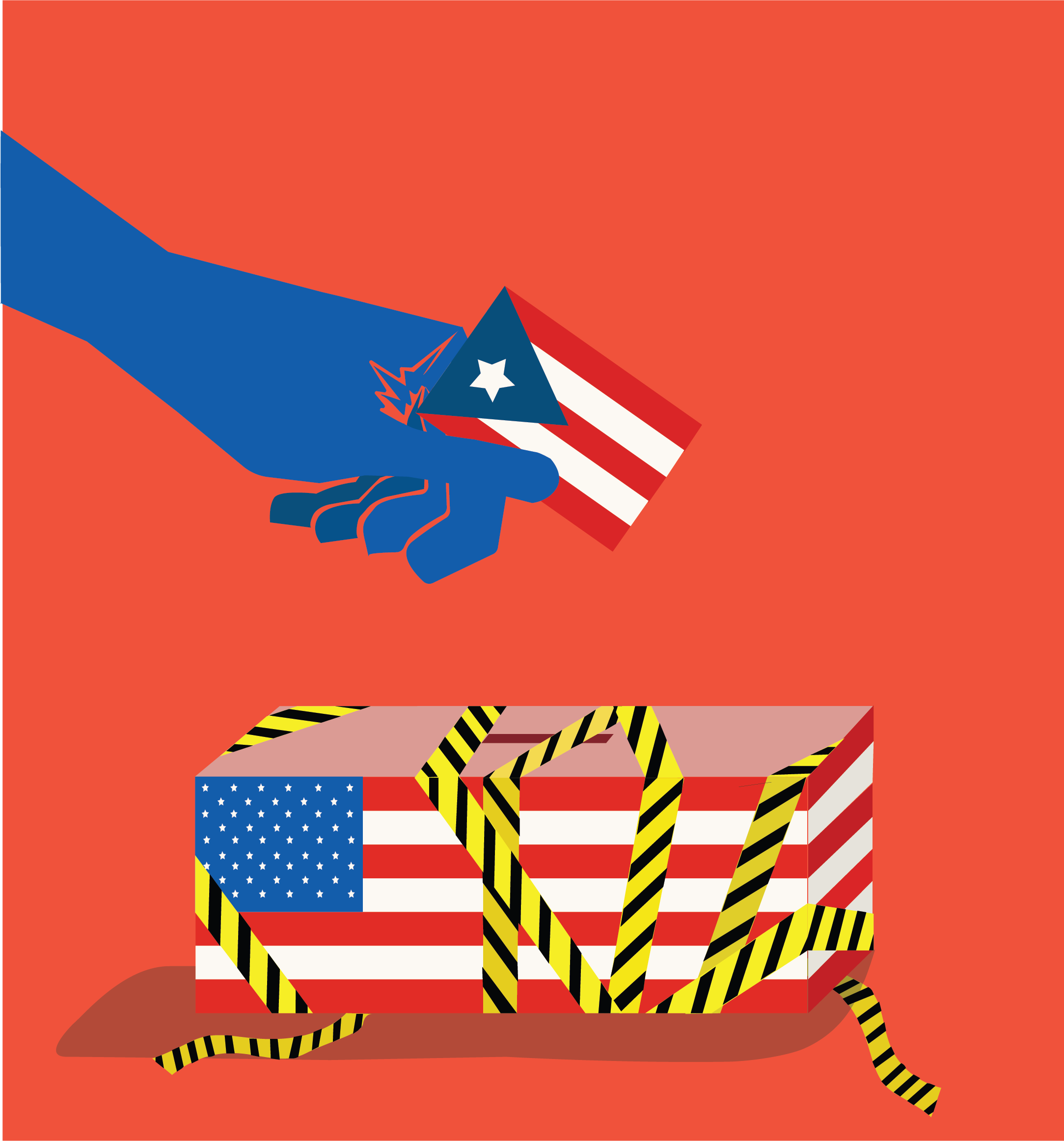In the weeks leading up to the election, every time I walked into the University Center, volunteers reminded me to vote. And every time, with a smile on my face, I forced myself to say, “No, thank you.” I am not allowed, just like every other Puerto Rican without a permanent address in the United States. Seeing all my peers content on election day, being able to exercise their civic duties with their “I Voted” stickers is something empowering I wish I could be a part of.
There are a lot of historical reasons for this complication, which I learned on my own because what we, Puerto Ricans, are in relationship to the United States is not clearly taught in our education system. The United States obtained Puerto Rico in 1898 as a consequence of the Spanish-American War. In 1917, President Woodrow Wilson decided to give all Puerto Ricans U.S. citizenship. Since then, all of us are born citizens of the United States of America. We fight their wars, actively contribute to the economy through different forms of commerce and pay federal taxes. We can vote in presidential primaries. Yet, we cannot vote in these midterm elections.
The closest we get to being represented is through the Resident Commissioner, whom we vote for every four years. A single person, with very singular, partisan views that do not represent the entire island, is the one that goes to Congress to say, “All Puerto Ricans want this, consider it!” The logic of having this one person is that since we are such a small island, with 3.3 million residents, we only need one voice in the U.S. government. Regardless of this person being able to attend hearings and participate, he or she cannot vote in the final passing of bills, even if they affect Puerto Rico. Right now, the Resident Commissioner is from a political party, the New Progressive Party, that aspires to statehood, which is something I entirely disagree with.
The 2016 election took place in my senior year of high school, when I was living in Caguas, Puerto Rico. I struggled with the decision about whether I should give up my dream of living in New York City because of fear of the government or move regardless. As I faced my fear and moved to this new country about 10 months later, I knew the role I wanted to play within this community. However, unable to vote and share my opinion, I ended up being extremely frustrated with multiple decisions being made in the country. A month after I moved, Hurricane Maria hit Puerto Rico, and I was even more disappointed with the U.S. government for its lack of support and organization for those affected. I want to be able to choose someone I believe is fit to make decisions regarding my home.
Puerto Rico is not a state, but it is not an independent country either. In Spanish, we are “Estado Libre Asociado,” which literally translates to “Associated Free State,” a somewhat contradictory phrase. We are referred to as a “commonwealth.” We are a territory from which the U.S. largely benefits. In other words, we live under colonialism.
Most of our affairs related to commerce, trade, federal taxes, laws and immigration are controlled by the federal government. I receive federal financial aid for my education, but even within this system I have encountered problems. At the start of this semester, I had a hold on my account because my student loans had not gone through. When I reached out to FAFSA about it, they said the reason it hadn’t gone through was because I wrote “Puerto Rico” and not “Puerto Rico, USA” in my address. This speaks to a larger context of the uncertainty that comes with our political status. I didn’t choose to be suppressed by one of the most powerful countries in the world.
Even though we have privileges with our citizenship, such as easy access to enter the U.S., we are still very much abused. The fact that we cannot simply vote in midterms or presidential elections is marginalizing.
This is not to say that Puerto Rico should become a state. Many on the island would love to be the 51st state. Others, like myself, consider independence the most viable option. Some even prefer the uncertainty that we have right now as a territory. Regardless of the political status we want to acquire someday, we deserve basic human rights now. The United States dictates all of our decisions. We should be able to exercise power through voting, like the democracy we live in celebrates.
As a New School student, I am being taught to voice my opinion, but the political status of my home does not permit it. If I had a permanent New York City address, I could participate in the elections, but I am only here temporarily to study. I have never voted before, since elections in Puerto Rico are every four years, and I was 17 in the past election. But, I look forward to the next opportunity I will have to voice my opinion because it is my responsibility as a member of the community. All elections have the potential to change our communities. Voting matters. I can’t participate in U.S. elections. But all of those who can, should.
Illustration by Olivia Heller







